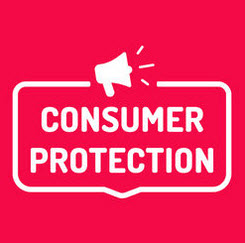On March 7th, the administration is expected to announce an agreement reached with major auto companies concerning the overhaul of future mileage and emissions standards, regulations that would have required the industry provide consumers with vehicles that meet a target of at least 54 miles per gallon by 2025.
The move is a regulatory rollback on vehicle pollution that will relax restrictions on tailpipe emissions of carbon dioxide and the mandate that American automakers design and build more sophisticated fuel-efficient vehicles. In doing so, auto manufacturers are effectively backpedaling on consumer protection. As a result, consumers are expected to have fewer options when it comes to electric vehicles and those with improved fuel economy and other technology, which improves performance of vehicles without requiring the use of additional gasoline. Other rollbacks to regulations aimed at protecting consumers–both at the federal and state levels–are also expected, and may result in litigation.
Related Issues
Some consumers are also now concerned about the potential for other important protections put in place to prevent disasters, such as the recent Takata airbag issue involving several deaths linked to shrapnel-shooting airbags. The company recently agreed to pay $1 billion to end the criminal investigation into the airbags, however, several automakers will still have to answer allegations concerning when they knew about the defect in relation to the recall.
Consumers are now accusing companies such as BMW, Ford, Honda, Nissan, and Toyota of previously knowing about the defect, but continuing to use the airbags for financial reasons. Specifically, reports have circulated that companies like Toyota had widespread concerns about the quality of the airbags being “unacceptable,” even though they continued to be used.
Litigation Coming
It is rumored that automakers expect the new administrator of the Environmental Protection Agency to initiate legal action and revoke individual states’ abilities to enforce their own tailpipe standards. (amongst other standards designed to protect its citizens.
This, along with several other moves to roll back regulations on consumer protection, is expected to be at the heart of various court challenges over the next four years. For example, last month, the New Mexico Attorney General filed a lawsuit alleging that Takata and other automakers failed to protect consumers from the airbag defect linked to 11 deaths. The lawsuit names many automakers as defendants, claiming that they misrepresented the dangers posed by the airbags and violated the state’s unfair trade practices act by producing airbags that were dangerous.
Consumer Protection & Business Attorneys in Florida
There are federal and state laws which are designed to protect both consumers and businesses from harmful practices. If you have been the victim of a consumer protection issue, contact us today for a free legal consultation. The Boca Raton attorneys of Lavalle Brown & Ronan regularly work on disputes related to consumer fraud and protection from consumer fraud.
For more information and in depth analysis, please contact Attorney Ken Ronan at kronan@bocalaw.com and Case Manager Richard Bagdasarian at rbagdasarian@bocalaw.com.
Resources:
nytimes.com/2017/03/05/business/detroit-automakers-emissions-standards.html?hpw&rref=business&action=click&pgtype=Homepage&module=well-region®ion=bottom-well&WT.nav=bottom-well&_r=0
consumerist.com/2017/01/25/new-mexico-sues-15-carmakers-takata-for-concealing-deadly-airbag-defects-seeks-10kday/




